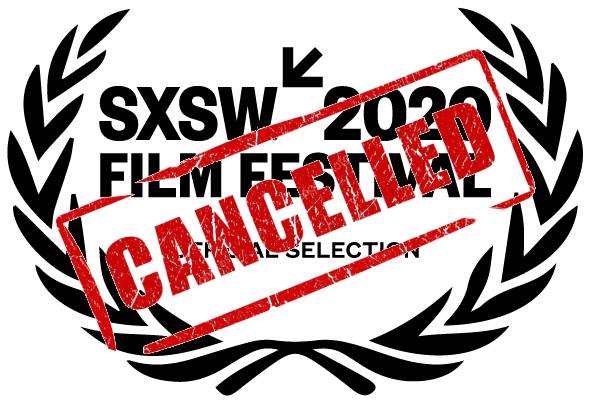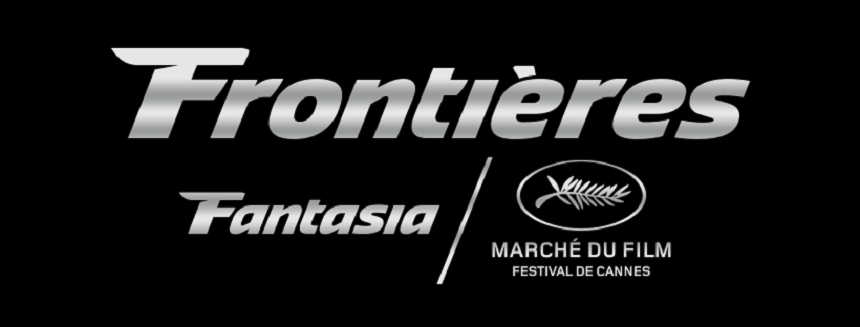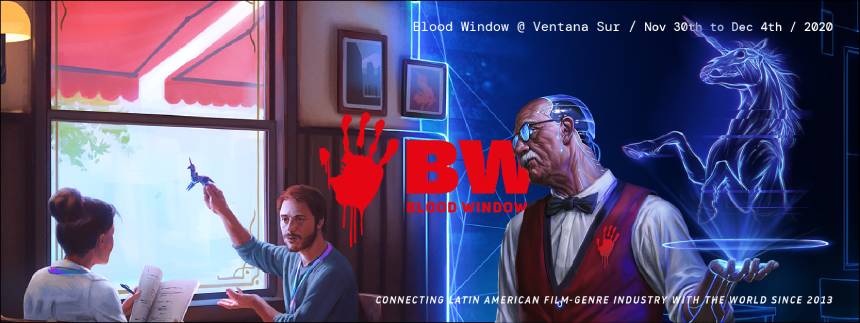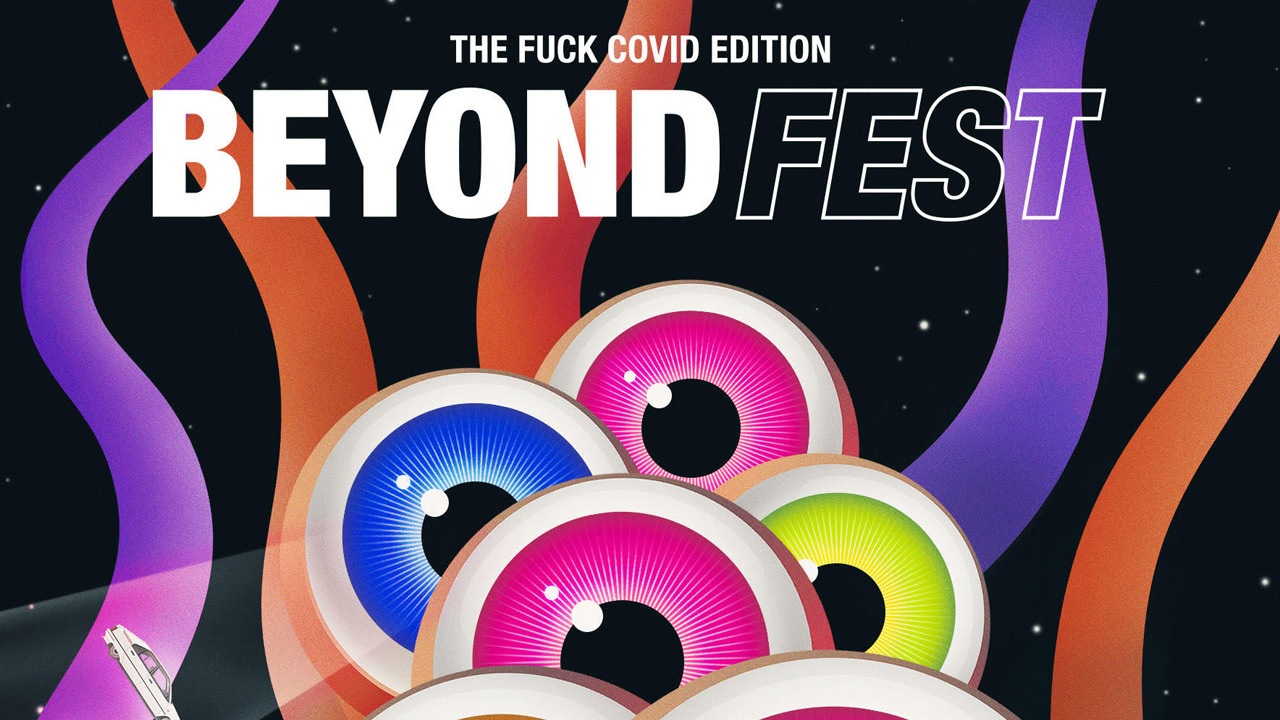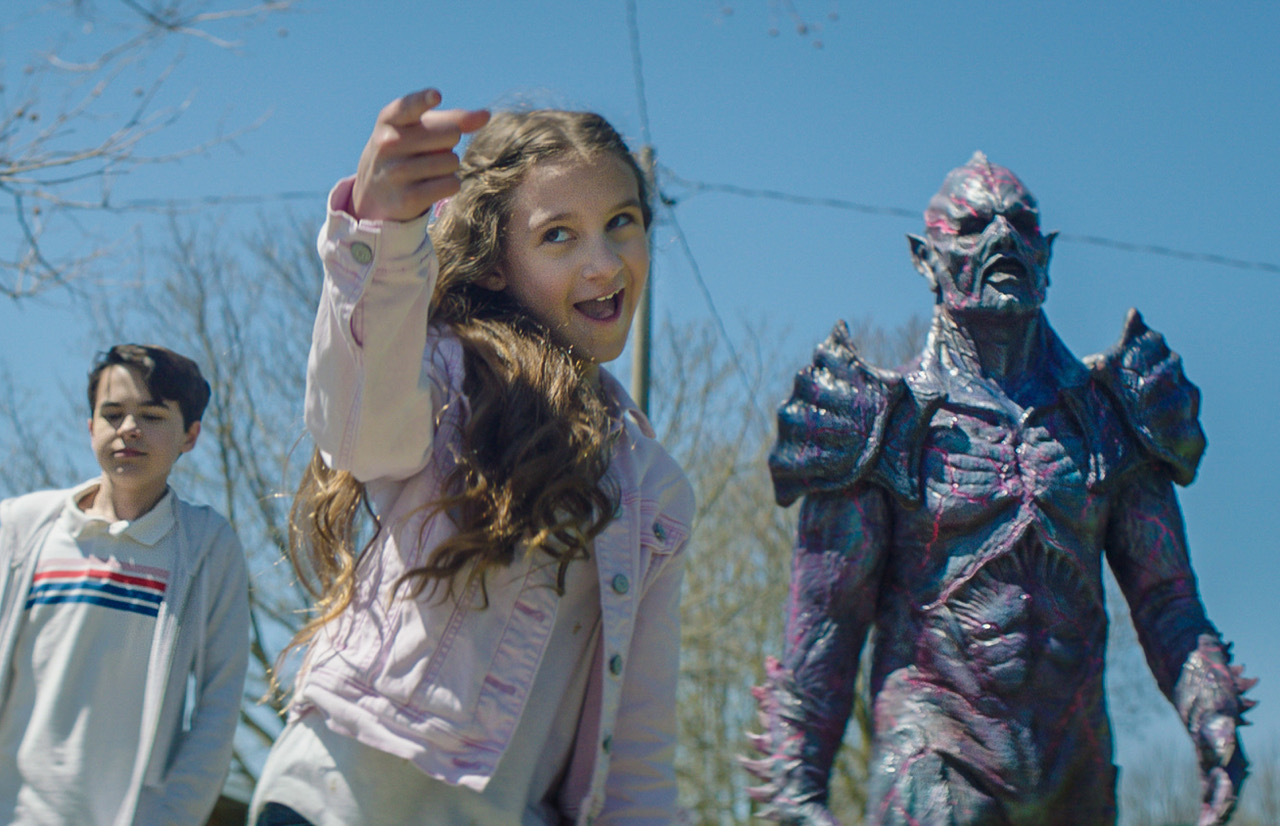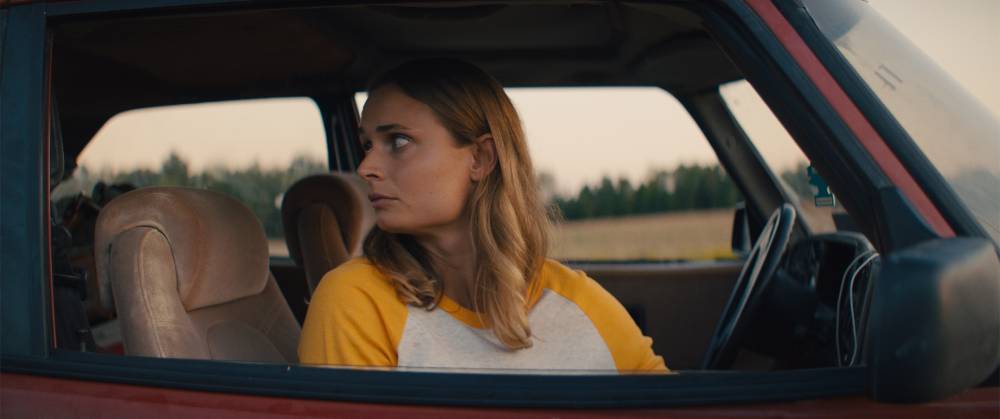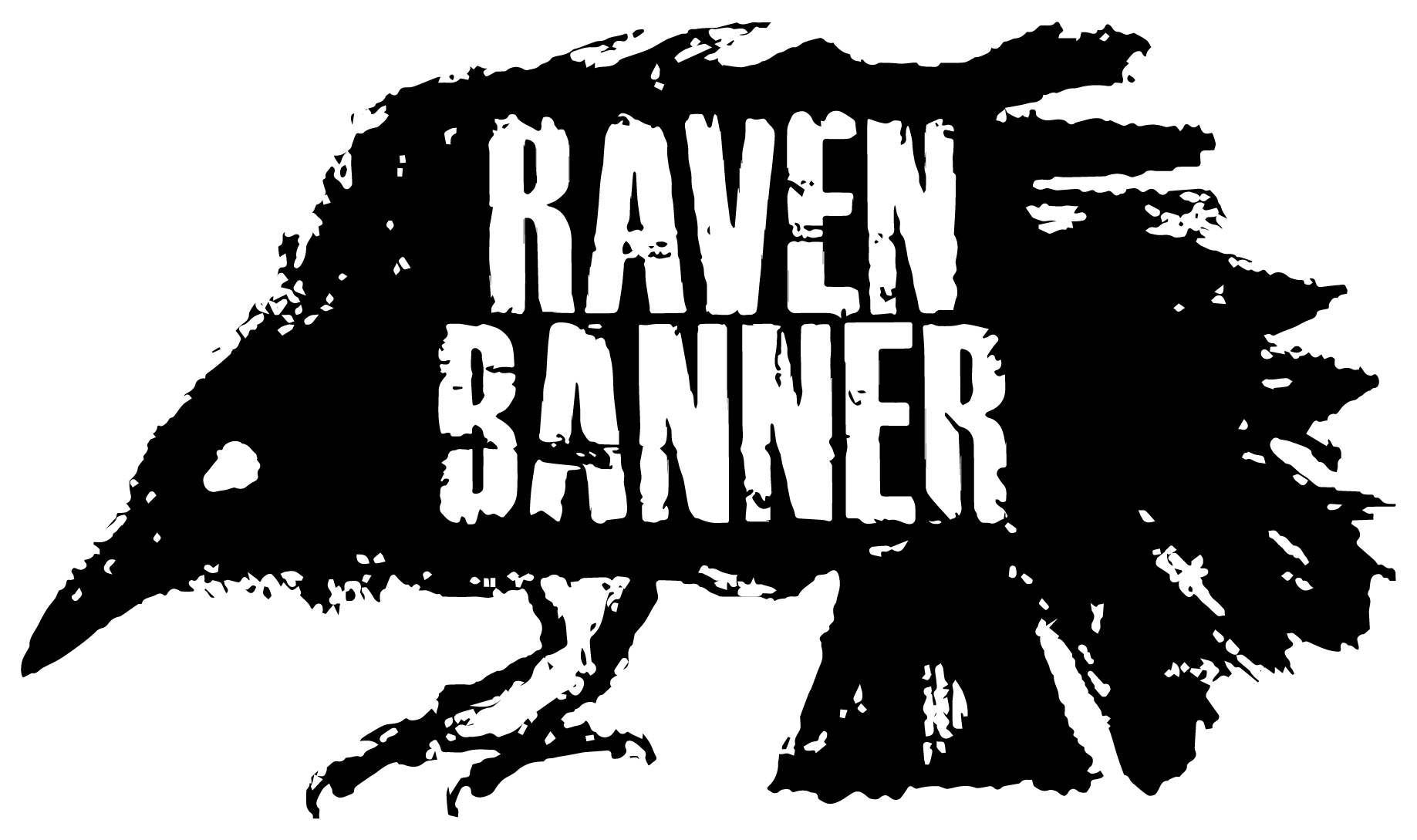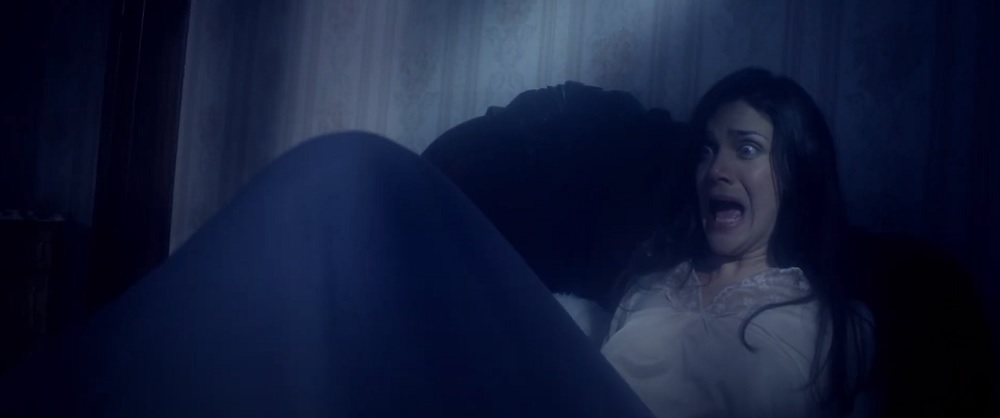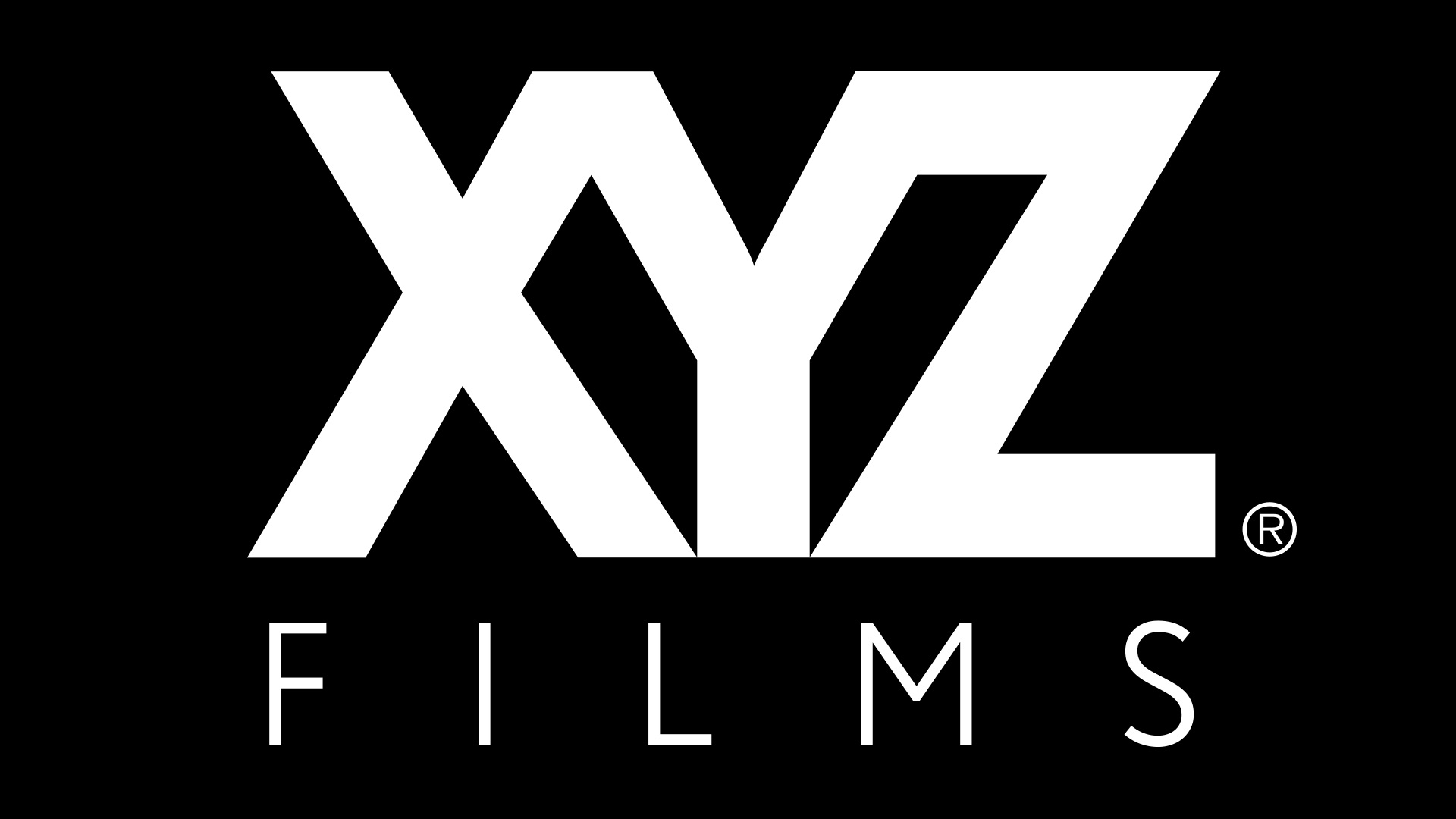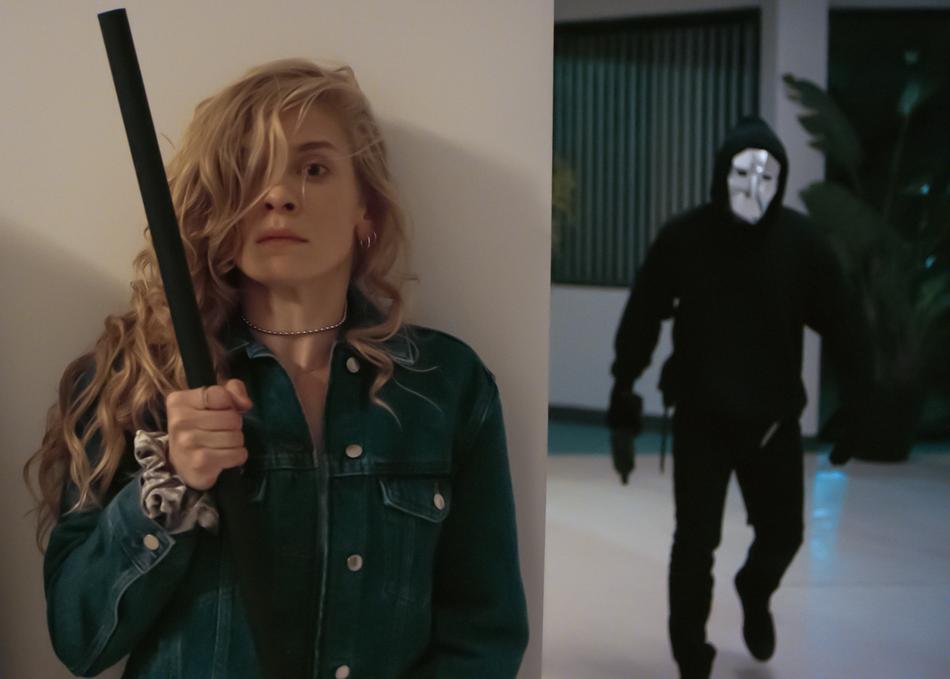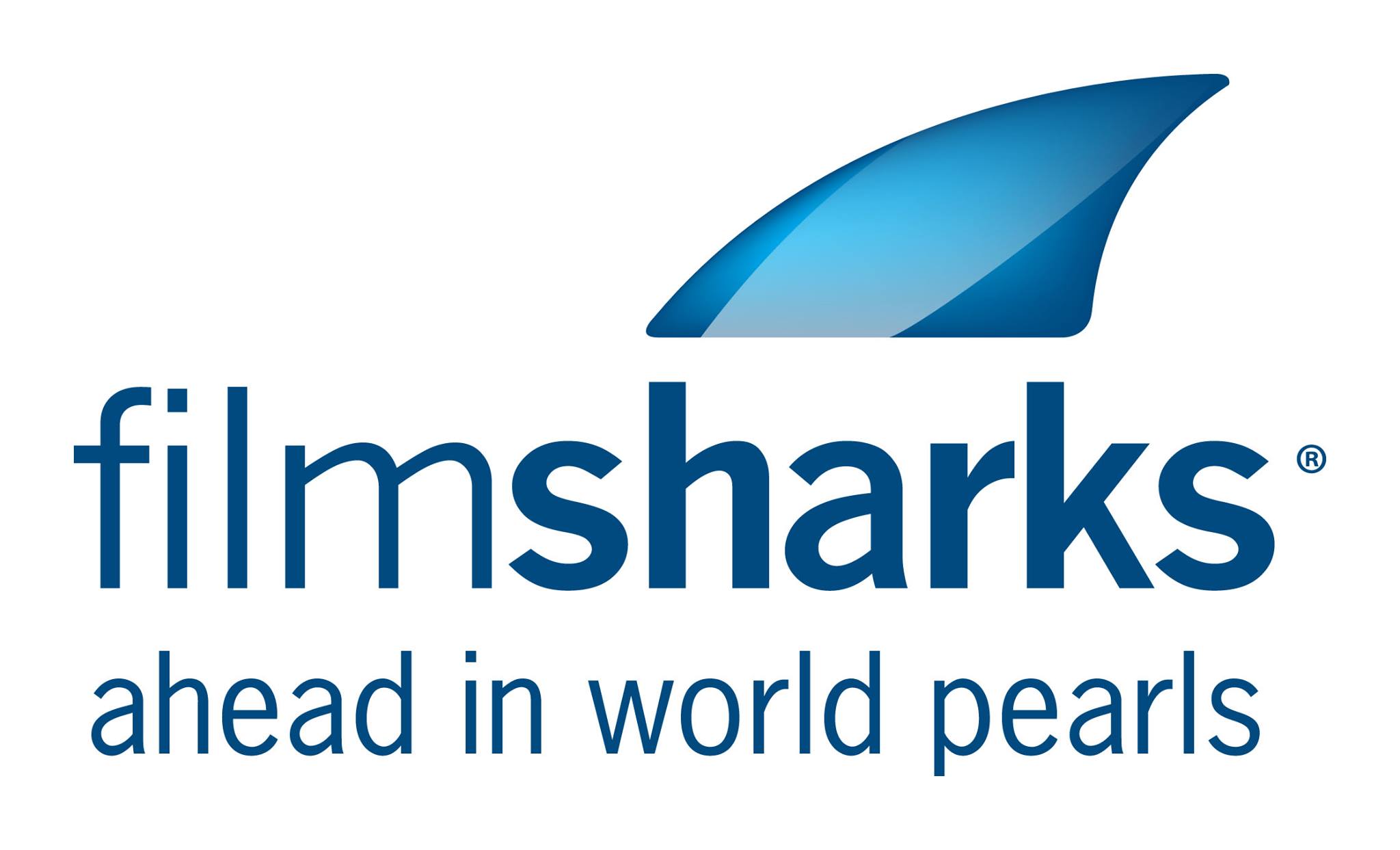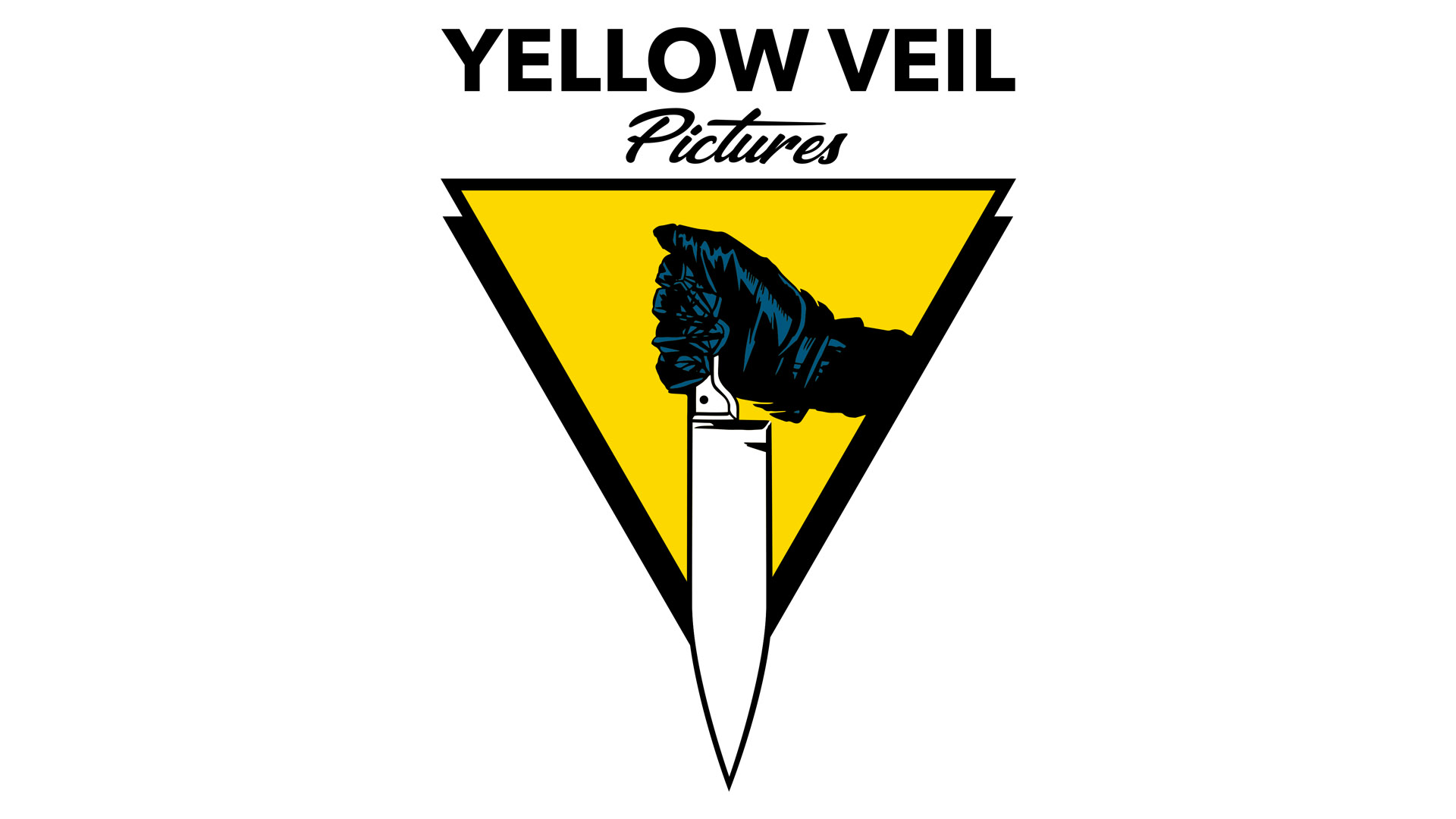The Great Festival Rebound of 2020: Alpha to Omega, From Production to Sales












What kind of market were you able to run this year? Physical, Online, Hybrid?
Javier - It was an online edition and using the same platform as the Marché du Film online did. Although 100% of the program was online, Ventana Sur launched a program of traditional screenings in theaters of 8 cities in Latin America and Europe running at the same time of the online event.
Annick - Due to the travel restrictions and the confinements in various parts in the world, we went full digital.
If you ran a virtual market what platform did you use?
Javier - We used a combination of apps with a similar environment as Marché Du Film. Some apps we used Talque for the panels, conferences and speed dating, Zoom, B.Square for B2B meetings. Too many for my liking.
Annick - We use Zone Festival for the submissions of the projects and the guest management and MARCOM ACE for the meetings. For the pitches, we used Cinando VL.
What were factors in choosing the right platform for your market?
Annick - We've been working with MARCOM and Zone Festival for a few years and there was no reason to change since we're happy. I chose Cinando VL because we have an ongoing relationship with the Cannes Market via Frontières Platform and it's an easy tool to use.
What should other markets consider if they have to go virtual next year?
Javier - I think that the more the use of applications is simplified, we will be able to have better results in the use of the platforms. 2020 served as a long tutorial to familiarize us with the use of B2B applications, some of them even modified their environment as we approached the event. I am sure that by 2021 we will be better prepared.
Annick - The time zones!!! Finding the right platform that takes in account the different time zones of the participants. We had some hiccups but in the end, everything went fine.
What impact did the pandemic have on your program(s) this year? Were any events cancelled as a result?
Javier - The program in Ventana Sur Market did not undergo major changes. We decided to keep the original program for adaptation to the online format. It is essentially the same one we have been working on for the last five years. We felt that keeping the same structure from the traditional event would help participants quickly navigate the digital platform packed-full of activities and all running at the same time. We are very happy with the results.
However, we miss not having been able to carry out the third edition of the Blood Window Film Festival in Argentina. that we hope to be able to resume next april in 2021.
Annick - We were able to organize the Forum in Karlskrona without trouble. When I took over in April, I already had heard about some events going digital, so I very quickly checked the possibilities. Since we partner up with the Cannes Market, we didn't have to worry about the technical side for the Platform event. I only had to make sure that the teams of the selected projects could/would prepare their pitching videos on time. So it was more a race against the time than a technological struggle. For the Market which was supposed to take place in Montréal, we went full digital and the support from the industry was great.
If you were able to run a physical/in house market programs were you able to run at full capacity or were social distancing practices in place? Once started, were you able to complete the market as intended?
Javier - We waited until October to decide if we were finally going to hold a hybrid or virtual event. We were finally able to adapt to an online edition and carry out the event on the planned dates.
Annick - Full digital, so no problem.
When did hosting a market, in whatever format you chose, become a reality? What was the moment when you decided, okay, we can have a market this year? What motivated you to go ahead and have a market in spite of the adversities?
Javier - With the Blood Window program we start working around the second week of March. We are happy that Ventana Sur Market renewed its continuity until 2023. Despite the economic and health crisis that the pandemic is causing to the industry, we feel our duty is to continue creating industry training programs to support the community of independent filmmakers and producers that trust in us every year.
Annick - The news about the virus were circulating at the Berlin Film Fest and I know that Lindsay Peters, the previous Market director, had started looking into digital solutions. When I took over, we decided and set everything up within 2 weeks.
I knew that we had a strong Genre community and I was certain that the community would follow us down the digital road. The world didn't stop spinning when COVID hit and it was clear to me that content would be needed.
How were the numbers of submissions compared to prior years?
Javier - The submission remains mostly the same considering the past editions. We noticed that this year we had an increase of projects in the development stage. With a total of 214, we have also received projects from Central American countries such as Costa Rica and Guatemala that did not happen for a long time.
Annick - The submissions closed before COVID hit. So we didn't suffer from a reduction of submissions.
If push comes to shove and you have to consider hosting an alternative version of your markets in 2021, how will we be able to have sustainable co production markets in the future if we cannot ‘fill the seats’ as we did before this year?
Javier - I believe that 2021 is not going to be much different from 2020. In this framework, the challenge will be the adaptation to the use of combined online tools in order to find the best way to develop new strategies to make online events more bearable. 2020 put us to the test with the arrival of applications such as zoom, jitsi meet and B.Square for B2B meetings.
Annick - During 2020 numerous new companies released new softwares for our industry. The existing ones made their systems better. And the industry has learned to use these new tools very quickly, despite being tiring for the eyes and the brain and disrupting ordinary life. We are an established and important Genre Co-Production market and we were able to grow a fantastic community of producers, sales agents, buyers and investors who are looking for content. "Filling the seats" is a completely different debate but I do believe that content is needed, whichever platform it will be on. So I don't see Co-Production markets fading.
Markets can be a fun experience when you gather with your friends. Markets are also important times for networking and meeting new people. If you ran a market that was virtual or had social distancing restrictions in place, how or what did you do to create anything related to the physical market experience? (ie. social events, gatherings, retention of programming that happens outside of the film schedule)
Javier - When we decided to do the event online, we knew that the challenge would be to be able to put together an experience for the user that has the ability to be close and friendly to the virtual environment. We always knew well that we should not try to imitate the traditional event experiences.
I believe that mingling in a market can not be replaced. In addition the possibility of being all together in the same place with the same time base. Unfortunately we will have to adapt to this new normal for a while until we can have a face to face meeting again. We hope that happens soon
Annick - Networking is an important part of the experience. And I regret that we were not able to hold physical events. It's very difficult to network online when you have hundreds of people on a Zoom. For Frontières, we made the decision to hold the Market on invitation only so that the participants could meet with targeted attendees. Clearly not ideal, but choices had to be made. If we need to go digital again, I will look into mingling platforms or will try to offer some online spaces for more people to meet.
What festivals did you do PR for and what films did you represent that had world premieres this year?
Kaila - This passed year I was lucky enough to head comms for NIGHTSTREAM, the collaborate virtual festival that included my usual annual clients, Brooklyn Horror, Boston Underground, and North Bend, as well as Montreal’s Fantasia International Film Festival, which had to pivot to digital earlier in the pandemic days when it became clear we could not hold a safe and responsible physical event.
In 2020 I repped Anthony Scott Burns’ hypnotic dark horror sci-fi COME TRUE, which launched out of Fantasia and IFC Midnight will be releasing this coming March; Natasha Kermani’s surreal feminist thriller LUCKY, which was originally set for SXSW but debuted instead at Fantasia and will land on Shudder in March as well; Brea Grant’s pitch black comedy 12 HOUR SHIFT, another displaced COVID premiere that was meant to screen at Tribeca but had its first public screening at Fantasia as well, and was released in October from Magnet; and Devereux Milburn’s feverish horror HONEYDEW, another of the 2020 Tribeca class of midnighters that could’ve been, and which premiered at NIGHTSTREAM and will see release this Spring from Dark Star Pictures as the first title on their new banner with Bloody Disgusting.
Katrina - SXSW: We repped ARCHIVE and ARKANSAS. But unfortunately - the festival was cancelled. - TRIBECA: We repped INHERITANCE. - FANTASIA: We repped THE DARK AND THE WICKED. - We also represent BEYOND FEST as a whole. - Sundance 2021 - We rep PRISONERS OF THE GHOSTLAND.
What kind of PR did you do? Lineup announcements, interview set ups, distribution pickups.
Kaila - All of it? Honestly, I’m pretty versatile, and pretty much the only kind of film-related PR I don’t do is awards campaigns.
Katrina - SXSW: ARCHIVE and ARKANSAS: We had lined up the following but we were not able to execute due to the cancellation. - first look exclusives - curtain raiser stories - specialty suite interviews - phoners/in-person interviews - invited critics to world premiere screenings; secure reviews - invited press to red carpet premiere - set up pre-party logistics and invited press
TRIBECA: INHERITANCE:
- Set up Tribeca Talks Virtual Panel with Lily Collins, Simon Pegg and Vaughn Stein.
- No additional press was done due to the times.
FANTASIA: THE DARK AND THE WICKED: Since the theatrical/VOD/Digital release was months away from the festival - we did not do any interviews at the festival. Our key goal was to set the groundwork for positive word of mouth as we entered our release window. In the end, we generated 40 Rotten Tomato reviews + other reviews from non-RT critics at the festival alone. The buzz was like wild fire in the genre community. We were so thrilled with the reception.
BEYOND FEST: - secured placement of festival line up - spearheaded press credentials - invited press to the drive in premiere - secured curtain raiser stories - secured trade stories on the festival - hosted 1 premiere for ARCHENEMY (inviting one Wireimage photographer on site to take pictures of the cast) - serviced premiere photos to media - invited press to the premiere for coverage - worked with various distributors on inviting press to individual drive in screenings - worked with various studios on doing interviews for the film/festival - pitch films/talent available for interviews at the festival
With virtual festivals did you workload increase or decrease?
Katrina - Even though festivals were virtual - publicists were still doing the same amount of work/pitching. The big difference was not being on the ground executing interviews and attending the premiere in person. I think the workload was the same, but less strenuous since we weren’t on the ground running. We were simply in our homes rolling from one to the next.
Kaila - At a physical festival, you go in every day to a desk and spend most of your time juggling emails, press days, step-and-repeats, eating, breathing, more emails, drinking, and meetings. It’s pretty demanding, and you always feel like there’s more to do, but you grow to love it (and if you don’t, you’re in the wrong job).
When we look at virtual, there’s a lot less of the coming and going, and multi-tasking now means opening up multiple windows versus having to assign team members to be on opposite sides of the stomping ground as needed. But if you ask me, just the act of having to do all this alone from your room automatically determines it as more work, as every manner of communication becomes more complicated, and it’s significantly harder to coordinate with your team.
Virtual festivals do create a basis for wider reach of journalists that can take part, though, personally, my festivals have always engaged with remote press from around the world, so all that’s changed is accounting for an increase in numbers and nothing overwhelmingly structural. It’s also significantly harder to wrangle press when you’re not around them in person, and especially challenging to push them to attend breakout screenings and encourage them to run coverage in a timely rollout to the actual festival as your now competing for their attention with their loved ones and day-to-day life, and all the urgency of a real event has been lost.
Put simply, a physical festival requires more blood, sweat, tears, cursing, screaming, and cheering, but a virtual festival requires more demanding follow-ups, and takes more focus to get through the day, and encouragement to start the next.
Did you do any PR work on site, at an in-house or drive-in festival? How did safety protocols affect how you approached those times?
Katrina - Yes at Beyond Fest…we did 1 event. For the photos - we made sure talent was socially distanced during the photo shoot, 6ft apart with masks. Everyone was very respectful due to the times.
Kaila - Nope!
Do you think films moved from the circuit to distribution quicker this year? Did the time you spent representing films decrease as more companies tried to swing titles into distribution than linger on the circuit?
Kaila - It’s tricky for me to answer this since, until recently, the bulk of my work has been festivals, but I do agree that the titles I’ve been attached to that have been picked up during the pandemic have seemed to roll-out faster than I expected, though I think this is predominantly a case with smaller indie and genre titles, as these are the ones that gain the most from VOD numbers and would have had minimal theatrical presence regardless. For these films, getting out while people were staying in made the most sense, especially with so many bigger titles pushed off the slate for the time being.
Katrina - I’m not sure on this as my titles already had distribution coming into the festivals.
Image from Psycho Goreman, scheduled for SXSW 2020.
Was there any immediate impact on your group from the cancellation of SXSW or any subsequent festivals until the circuit found its legs again?
Joe - There's always an impact when one of the major film festivals has to suddenly shift dates or jump to an online setting. Since we didn't have a title in the competition -- and since SXSW doesn't have as centralized a market -- the effect was not as profound on us as it was for other companies and, most importantly, filmmakers. SXSW, however, began a year-plus cycle of shifting, adapting, making mistakes and then correcting those mistakes with the next program. I think you started to see glimpses of what was working and what wasn't almost immediately, but it took well into the summer for anything to feel remotely stabilized. Even, today, I'm not sure stable is the word to describe it but it's certainly less chaotic and intimidating.
Todd - There was, yeah, though probably more because of how close to the event itself the cancellation came down than the actual cancellation itself. We’ve had – and used – the tools to work with buyers digitally for a while now, so that part of it wasn’t entirely new. What did change, though, was the speed at which we had to change gears and rebuild a plan on the fly. And then just finding ways of being as efficient and effective as possible when you’re doing this as standard business as opposed to the occasional one off.
Andrew - No, thankfully not. Psycho Goreman for instance, which Raven Banner Executive Produced and is distributing in Canada, got accepted into SXSW 2020. So although the film didn't actually play there, just being accepted into the fest brought a lot of attention to the project and helped secure U.S. and international sales.
Image from Honeydew, scheduled for Tribeca 2020.
Did you have any films in festival lineups that had to find new homes? What factors play into how easy or hard it is to find a new home for a film from your lineup?
Joe - Yes we did. We had Honeydew in Tribeca last April, and then a number of other various invites fell through due to COVID limitations. It's been a year of heartbreak for a lot of us. I think the biggest factor for everyone was 'what's next?' For awhile, what's next felt like holding out for the next physical event. So I think the biggest factor (aside from COVID itself) was the unformed idea of what a Digital-driven festival cycle could even look like for sales and distribution.
Todd - Yup. One of the big factors in deciding whether to try and push down later in the calendar was simple factoring in the logjam of titles. Every time an even cancelled that meant that a huge percentage of the titles at that event – plus the titles from all previous canceled events – just sort of slid down the calendar to targeting the next major option. It just wasn't viable. Put that next to the increased demand in the market for new content as films that were supposed to be completing and delivering to buyers who had bought them at pitch stage didn’t deliver and we ended up simply leveraging the festival selection announcements – which were actually quite helpful – to catch buyer attention and going straight to market.
Andrew - Festivals are all watching what others program, and many programmers work for multiple fests, so even if a film didn't play a fest due to its closure, it was still on other fests' radar which made finding a new home for it fairly easy.
Is there a forecasted lull in available content to represent as productions were/are delayed (for whatever reason)?
Guido - Yes, we have our productions moving but at a slower pace than normal times. There (are) a lot of titles in post now that are looking for a sales rep home.
James - To be honest, we have not seen this. The thought was that there would be a lull in content, but we have been seeing as many films as usual, if not more. I think what could happen is that with the bigger films being held back or delayed, there will be a point in time where they all have to be released. So we could see a flood of this mid to high level content come out, and due to the volume suddenly become affordable to more of the distributors then normal. This could impact the smaller films, as attention will gravitate to the bigger titles. So maybe not a lull in product, but possibly a lull in sales for smaller content.
Michael - At some point companies cannot keep pushing back their releases, especially the studios. In anticipation of a content shortage, many indie distributors stocked their cupboards over the past year picking up titles and holding certain films back. In Canada, production is in full swing so everyone will see lots of content come the fall. It's weird being called an essential service but releasing movies like Psycho Goreman are the distraction we all need right now.
Joe - I think people keep talking about that, and yes there will be but I do not believe that it will be something so clear to everyone. Especially in the independent sector; creative, talented people find ways of creating films. I think this is much more a reality in the studio system. Independent film has always been about surviving immeasurable odds.
Todd - Yup. Absolutely. There is about a nine month gap where people couldn’t get much of anything going and even now things are running far below normal capacity for a host of reasons. So new production was very much impacted.
Image from Ghosting Gloria
Recovery is still a ways away but we expect production delays, either in volume or focus on what kind of films get financed first. What kind of projects get priority coming out of the pandemic?
Guido - Talent on board with great plots with a clear genre and market are easier to finance than arthouse or small titles. But there is room for small titles to fly (with) the right sales agent and the refreshing content with newcomer talent. As an example we are doing great with our new Uruguayan film in post production Ghosting Gloria. That was in Sitges' Coming Soon (program). I suggest you see the trailer and fall in love with it.
Another thing happening a lot to great films is that they are being turned into limited episode mini series.
James - For us the goal is to try to tailor content for sales, so I think that is still how we will operate. I would imagine though that some companies take less risks in the beginning, to try to build back up to it in a way. There are new rules for productions now, so there will be a learning curve.
Michael - Globally, I think there will be a strong push to revitalize production. In Canada, funding bodies such as Telefilm will hopefully offer more incentives to independent producers. Most importantly, I think we'll see a creative boom. For the past year, so many talented people have been cooped up thinking, imagining and writing! I can't wait to see what gets made!
Joe - I don't have the answer to this question. I have my fears and my hopes on what will get priority, but the reality is probably somewhere between.
Todd Brown - There are a couple answers to this. On the studio level, it’s the projects that are so sure-fire that the studio is willing to eat the costs of any possible shut downs and delays. On the indie level, it’s projects with contained settings and premises that make for COVID friendly production structures – don’t expect big crowd sequences for a while – and projects that can shoot in countries like Australia or New Zealand where the virus is very well contained, or countries where the funding bodies have made some sort of insurance solution available for producers in the event of COVID shut down.
The boring reality is that it’s the insurance issue that’s the biggest one. In the indie world, most financiers will not back your film if you cannot get a completion bond, and you cannot be bonded if you’re not insured. At the outset of the pandemic absolutely every private insurer in the world refused to give any sort of pandemic / outbreak coverage so nobody could get bonded. Solutions and workarounds to this have been slow to develop.
Image from Sputnik, scheduled for Tribeca 2020, went straight to market.
What are the pros and cons of trying to sell a film that played only in a virtual setting?
Joe - There are so many but the biggest are, without sounding like appealing to the idea of gatekeeping, A-List premieres make it rather easy to present your film to Industry and Press without having a large cross-section of audiences having the chance to see it yet. This means that you can control things a lot more. So what we are seeing is films going from Festival to Distribution at a fast rate. Incredibly fast.
Todd - This varied from event to event, and some definitely did better than others at filling this gap, but the big hole left by going digital is you lose the personal connection, the sense of shared experience, and the sense of ‘event’. That rush buyers have in watching a film in a room with a thousand+ highly engaged fans and watching the excited wave of response on social media is lost. And that can be a big thing when you’re a smaller, indie, non-star driven film. And, of course, there’s the pervasive and greatly increased risk of piracy.
I don’t think there are any pros inherent to the nature of digital events … anything positive you can do with the tools of a digital events you can also do with the tools at hand during a physical event. You lose things without gaining anything. But that’s the world we’re in for a little while longer, so it’s our job to adapt.
Andrew - The biggest con of selling a film that played a virtual fest is the fear of piracy - it's hard to sell a film to distributors if it's already available on torrent sites.
CO-production markets went virtual in 2020, what were the benefits and challenges to your group?
Andrew - The biggest challenge was not having face-to-face meetings. Plus there's an urgency that markets have which went missing when things went virtual. The benefit of going virtual though was the ability to connect with filmmakers that may have otherwise not been able to attend the market due to budget constraints.
Todd - Finding and evaluating the actual content being presented is as simple as it’s ever been, but you lose a lot of the personal connections and spin off stuff that comes from that. How do you get a real sense of a person in a 20 minute Zoom call as opposed to spending a weekend together, seeing each other at meals and social events, etc? As an organizer of a co-pro event, one of the things that stung to lose was the interaction between the groups pitching … normally those groups become a pretty tight community and you often see relationships formed group to group that lead to future collaboration and that’s brutally hard to reproduce in this format.
I do see an upside in the co-pro world, though, as the digital format can really democratize the field when it comes to access. There are costs of access and physical practicalities when it comes to how many people can attend a physical event that are lifted with a digital event. I think we’ll see a lot of these things embrace a more hybrid format going forward to re-capture the benefits of in-person for those who can attend that way but also allow broader access for those who may not be able to physically attend but can take part digitally.
Image from Initiation (Dembanger, scheduled for SXSW 2020.
If co-pros need to go virtual again this year as a sales agent what suggestions would you make to improve how they function this year?
Andrew - None. Everyone made the best out of an unideal situation. The film industry is all about flexibility and pivoting on a dime, so we're used to dealing with whatever gets thrown our way.
Todd - I’d like to see more time and events set up to encourage lateral interaction between industry and projects as opposed to just vertical, structured meetings. Encourage us to meet and talk to each other, basically. Beyond the projects being pitched – which will always be the prime focus – these are also meeting grounds for like minded people and the benefits can range a lot wider than just ‘did this project that pitched go forward?’
Joe - I think by-and-large the most successful experiment for 2020 was the move of markets to an online space. However, I will say this works better for focused markets rather than the large ones like EFM, Marche du Film or the broadcast markets like MIP and NAPTE. We were able to attend many works-in-progress programs that were difficult to previously schedule for a small team, and had great success finding new acquisitions. The bigger markets are properly run, but schedules and time zones make it much more difficult to meet with everyone that you could with the drop-in environment at a physical market. So, what I think you are seeing is a shift to business happening around markets but also more announcements are coming out between markets. In the end, there is and will never be a substitute for in-person meet ups.
Has the time a film spends on the circuit changed irrevocably because of the delay getting the circuit ‘back online’ and/or the need for distributors to make a living during more challenging times, thus pushing titles onto VOD sooner?
Guido - When we get a title that we feel can be a festival performer we focus on the list of events we feel we want to submit the title. But at the same time we are already pre-selling. Time is key as a December 2020 title is on VOD in January 2021.
James - Yes, overall the whole process was sped up considerably. There was, and still is, a desire to get as much festival attention as possible, for both the film and the production team, but it has changed. The demand for content outweighed the usual process in some cases.
Michael - I think once festivals worked out the piracy issue and secured a viable way to showcase films, distributors could then reassess their release strategies. It feels there was a bit of a rush to move some titles onto VOD but now it seems to be levelling off.
Joe - Irrevocably? Maybe yes. The speed of release has been grown faster and faster with each major technological shift in distribution. The onset of digital festivals has caused this time to evaporate almost completely for some titles that may not have had the cast/budget to perform in the same way previously. I do think that this will stay a reality for a good amount of films, but I think that a return to old methods of keeping a film on a festival circuit for a year or more (when effective) will also happen and it will become more a question of how much festival viability a film has and what kind of promotional boost a festival run can offer a film. The reality is, a lengthy festival run time may not be necessary for a film that will only pick up a small number of invites over a given year.
Todd - I think COVID accelerated this process, but did not create it. The release window system has been DEEPLY flawed from a consumer perspective for at least a decade. Staggered, windowed releasing hasn’t reflected how global audiences actually hear about and engage with – more importantly, how they WANT to engage with – content at least since the rise of widespread, easily accessible broadband. We’ve been caught in a system that served certain isolated sectors of the industry rather than the audience ever since that time and these changes have been coming for a while. COVID just gave the distributors the leverage they needed to finally break the stranglehold that exhibitors had over windowing, but it’s something they’ve wanted to do for ages. But, yes, runs will be shorter as things move towards more tightly coordinated global release dates. Festival accessibility will never drop below a certain threshold in the indie world – it takes about nine months to properly prep a release from the date of purchase – but it’s going to tighten up for sure.
What impact will collapsing window deals have on festivals? (Universal getting AMC on board a 17 day window before digital, the HBO / Warner move) How may that impact the indie space? Specifically, if AMC is now accepting a shorter window, does that present an opportunity to indie distributors who previously only had access to the majors if they agreed to much longer windows that did not mesh with PVOD release patterns.
Guido - We feel that there are some rules from major OTT (over the top) that pushed a shorter window from theatrical causing the HBO/Warner Media move among others. But the real value and profit from each window starting from theatrical to home-vid/TVOD and OTT from 2020/2021 is a reality yet to be learned.
James - How may that impact the indie space? For a lot of indie films, theatrical really does not come into play as much. So not sure it will have much of an impact. For the bigger titles, it will be a dramatic change I think, but the industry has to grow and evolve to match the marketplace, not the other way around.
Specifically, if AMC is now accepting a shorter window, does that present an opportunity to indie distributors who previously only had access to the majors if they agreed to much longer windows that did not mesh with PVOD release patterns.
Again not sure how much this impacts indie titles, but a shorter window definitely presents an opportunity for distributors. This may be a question for Michael here.
Michael - For us, having a shorter window isn't a bad thing. I don't think it will affect film festivals but rather it puts them in a better position. We've always worked with festivals to spotlight our releases but I think you'll see more opportunity for distributors to get their films showcased at a film festival before they end up in the theaters.
Canada has always been behind when it comes to day and date releasing with the US. Cineplex holds Canadian distributors to a theatrical 90 day window before going to digital. There are some ways to work around this but we need to get our films into theaters otherwise we can't get certain critics to review our films. One of the requirements for the big critics in Canada is that a film must be booked for a full week in theaters. All this puts us in a difficult position. When a film was released in theaters and digital in the States, we had to adhere to this window thus causing frustration for Canadian viewers not being able to access the film. The pandemic has removed the theatrical one week critic rule and maybe this will put pressure on Cineplex and other big theater chains to reevaluate and hopefully sync up better with the States.
Joe - I guess this depends on what role you think Festivals play in determining these factors. I believe festivals are not necessarily dumping grounds to game better distribution means for distributors and agents alike. I hope that festivals are able to ensure their own programs by continuing to focus priority on films that are open to acquisition and less on making their festival fertile for massive streamer concerns.
Todd - The window moves, right now, won’t have much of an impact in the short term as the films most affected by them are studio pictures that generally do not do a lengthy festival run anyway, if they do a festival run at all. They look at one or two big, splashy events to build up some free PR before release and then off they go into the world. So that won’t change, other than that I don’t see any reason why a studio would ever put any of their films into a digital festival. Doing that would be just inviting piracy without any of the social media buzz of packing a thousand people into a high energy in person premiere.
I do think for the indies that the move has the potential to be seismic. There’s an entire tier of distributors that has been frozen out of the big three distributors in the US because of their windowing rules. If you wouldn’t guarantee a minimum 90 days of theatrical exclusivity then you couldn’t play there, period. Which does not work AT ALL for distributors like IFC, RLJ, Magnolia, Vertical, etc for the vast majority of their titles. Out of our own library at XYZ, take a film like Mandy. That film ultimately did really well theatrically but the theaters available for it to be booked in were very limited because it didn’t fit the windowing requirements of the big three (AMC, Regal and Cinemark) which meant there were many, many, many markets where theatrical release was not a possibility in any circumstance. Those rules shifting has the potential to open up not just screens but entire cities to films that otherwise couldn’t go there. I’m pretty convinced that access to screens will prove a good thing for these smaller, more indie friendly, more adventurous in their business models sort of distributors.

More about Psycho Goreman
- Fangoria Chainsaw Awards: Vote for the Best of Horror 2021!
- Shudder in May: Gory Heavyweights PSYCHO GOREMAN And SKULL THE MASK Bring May Flowers
- PG PSYCHO GOREMAN: Steve Kostanski's Smash Hit Premiering on Shudder in May
- PSYCHO GOREMAN Dines Exclusively at Lester D's Compliments of Plastic Meatball!
- PG: PSYCHO GOREMAN Giveaway: Win a Blu-ray of The Smash Hit Comedy Horror Sci-fi
More about Honeydew
- Review: HONEYDEW, Exciting Rural Horror
- HONEYDEW: Watch The Official Trailer For Devereux Milburn's Sinister Rural Horror
- Nightstream 2020 Review: HONEYDEW, Impressive And Modest Rural Horror
- HONEYDEW: First Poster & Some Stills From Devereux Milburn's Rural Nightmare
- HONEYDEW: Yellow Veil Pictures to Sell Devereux Milburn's Horror Flick
More about Festival Rebound 2020
More about 12 Hour Shift
More about Lucky
More about Come True
- Fangoria Chainsaw Awards: Vote for the Best of Horror 2021!
- COME TRUE: Releases Digitally Across Canada March 12th
- COME TRUE: Trailer For Australian Release of Anthony Scott Burns' Sci-fi Horror
- COME TRUE: IFC Midnight's Trailer For Anthony Scott Burns' Cinematic Nightmare
- SPUTNIK, COME TRUE, THE TROUBLE WITH BEING BORN Win at Trieste Science+Fiction Festival
More about Sputnik
- SOON YOU WILL BE GONE AND POSSIBLY EATEN: TALK TO ME's Sophie Wilde Set to Star in Sci-fi Thriller
- Shudder in June: BEST WISHES TO ALL, ASH And Early James Wan Classics
- SPUTNIK, COME TRUE, THE TROUBLE WITH BEING BORN Win at Trieste Science+Fiction Festival
- MotelX 2020: Lisbon Genre Festival Lineup Includes LA LLORONA, THE RENTAL And HOST
- SPUTNIK Review: Ready to Join The Ranks of Great Sci-fi Horror
Around the Internet
Recent Posts
Friday One Sheet: LIVING THE LAND
Now Playing: BLADES OF THE GUARDIANS and Some Other Movies
Leading Voices in Global Cinema
- Peter Martin, Dallas, Texas
- Managing Editor
- Andrew Mack, Toronto, Canada
- Editor, News
- Ard Vijn, Rotterdam, The Netherlands
- Editor, Europe
- Benjamin Umstead, Los Angeles, California
- Editor, U.S.
- J Hurtado, Dallas, Texas
- Editor, U.S.
- James Marsh, Hong Kong, China
- Editor, Asia
- Michele "Izzy" Galgana, New England
- Editor, U.S.
- Ryland Aldrich, Los Angeles, California
- Editor, Festivals
- Shelagh Rowan-Legg
- Editor, Canada


